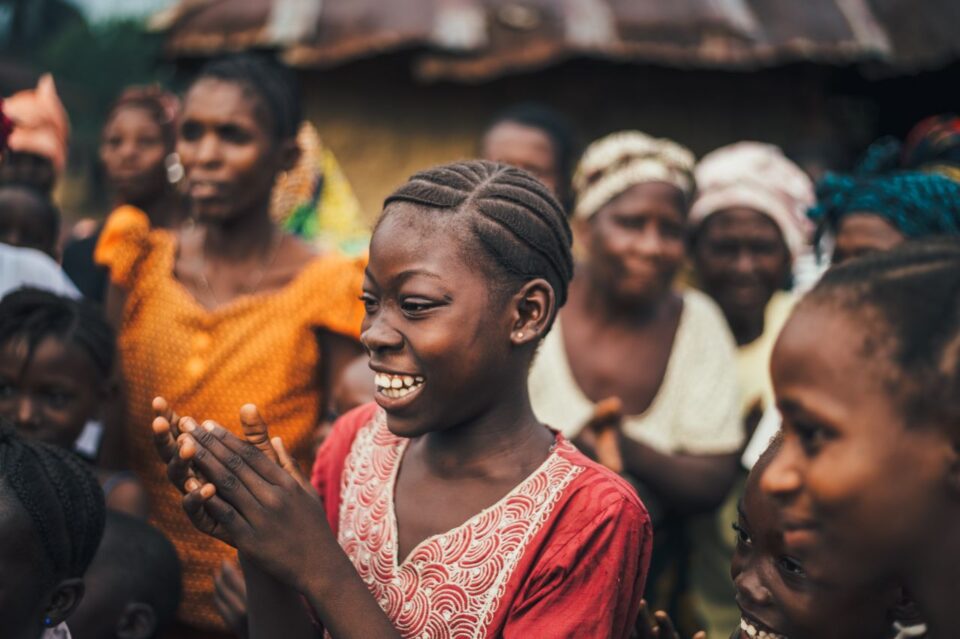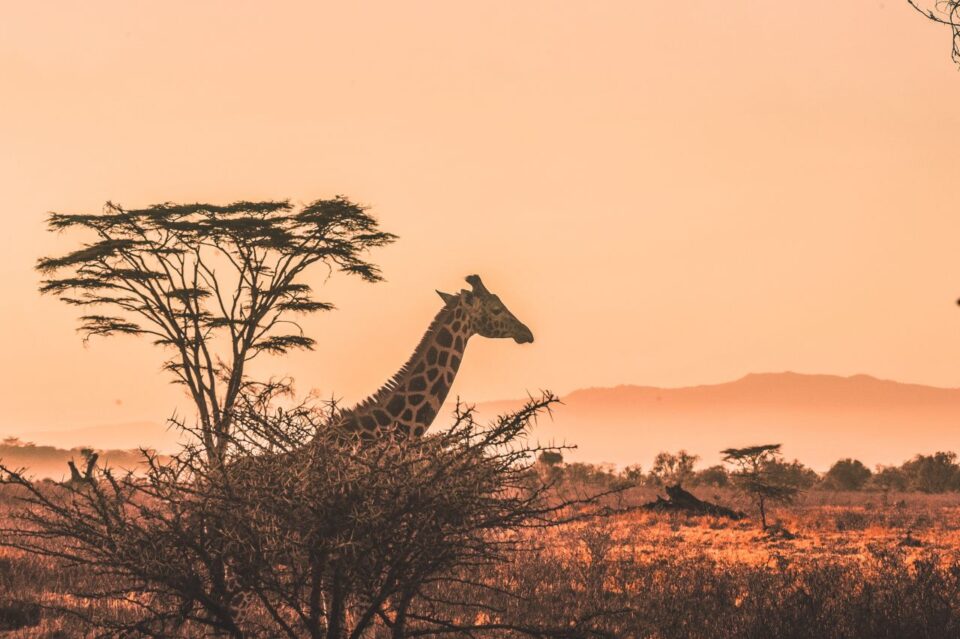Exploring Macau’s Linguistic Mosaic: Cantonese, Macanese, and Portuguese Languages
Discover a linguistic mosaic like no other.
Discover a vibrant linguistic mosaic with over 2,000 distinct languages.

Africa’s total number of native languages can prove hard to count as the continent is the second-largest and second-most populous in the world after Asia. Naturally, the number of African languages is proportionately mirrored in the vastness of this captivating blend of diverse cultures, historical richness, and stunning landscapes. Linguists now agree that Africa is home to 2,000 distinct languages, representing nearly a third of the world’s languages – a linguistic tapestry like no other on Earth!
Whether you’re honoring Africa Day on May 25 or you’re simply interested in exploring the many languages of Africa, you’re in the right place. We’re about to delve into the fascinating kaleidoscope of African languages, shedding light on the most commonly spoken tongues across the continent and the less-known, equally intriguing indigenous languages.
African languages are as fascinating as they are diverse. For example, certain languages within the Khoisan family distinctly stand out on the global language map due to their characteristic ‘click’ sounds – a rather exceptional phonetic feature that is largely unheard of outside this region.
But that’s not everything. There are still many more fascinating facts to uncover about the African languages. For starters, it’s good to know that they fall under several major language families:
These are just a part of the African language families. There are also several other smaller language groups (such as Khoisan, Mande and Ubangian) and language isolates, along with mixed languages known as creoles and others that haven’t been categorized yet.

Unsurprisingly, multilingualism is quite common in Africa. In many African countries, people may speak a local language at home, another at school or work and even French, Portuguese, English, or Arabic for formal education or communication with the government.
As previously mentioned, Africa is home to 2,000 languages so attempting to list all African languages would be an enormous task. However, we can look at some of the most notable languages from different regions in Africa:
| Language | Countries spoken in | Estimated number of speakers |
|---|---|---|
| Afar | Djibouti, Eritrea, Ethiopia | 1.5 million |
| Afrikans | South Africa, Namibia, Botswana, Zambia, Zimbabwe | 7.2 million |
| Akan | Ghana | 11 million |
| Amharic | Ethiopia | 32 million |
| Arabic | Algeria, Egypt, Libya, Mauritania, Morocco, Sudan, Tunisia, Western Sahara | Over 100 million |
| Bambara | Mali | 6 million |
| Berber | Algeria, Libya, Morocco, Tunisia, Western Sahara | 16 million |
| Bono | Ghana | 1.3 million |
| Chichewa | Malawi, Zambia | 10 million |
| Dinka | South Sudan | 2 million |
| English | South Africa and more | 6.5 million |
| Ewe | Ghana, Togo, Benin | 3 million |
| Fula | Senegal, Guinea, Mali, Niger, Nigeria, Cameroon, Chad, Sudan | 25 million |
| Hausa | Nigeria, Niger, Ghana, Cameroon, Sudan | 49 million |
| Igbo | Nigeria | 27 million |
| Kikuyu | Kenya | 6 million |
| Kinyarwanda | Rwanda, Uganda, DR Congo, Tanzania | 10 million |
| Kirundi | Rwanda, Tanzania, DR Congo, Uganda, Kenia | 9 million |
| Kongo | Angola, DR Congo, Gabon | 5.6 million |
| Lingala | DR Congo, Republic of Congo | 5.5 million |
| Luganda | Uganda | 4.1 million |
| Malagasy | Madagascar | 18 million |
| Mossi | Burkina Faso, Benin, Ivory Coast, Ghana, Mali, Togo, Niger, Senegal | 7.6 million |
| Northern Sotho | South Africa | 4.6 million |
| Oromo | Ethiopia, Kenya | 37 million |
| Portuguese | Angola, Cape Verde, Guinea-Bissau, Equatorial Guinea, Mozambique, São Tomé and Príncipe | 17 million |
| Sesotho | Lesotho, South Africa, Zimbabwe | 5.6 million |
| Shona | Zimbabwe, Mozambique, Botswana | 7.2 million |
| Somali | Somalia, Ethiopia, Kenya, Djibouti | 16 million |
| Swahili | Kenya, Tanzania, Uganda, DR Congo, Rwanda, Burundi, Zambia, Malawi, Madagascar | 50 million |
| Tigrinya | Eritrea, Ethiopia | 7 million |
| Tshiluba | DR Congo | 6.3 million |
| Tsonga | Eswatini, Mozambique, South Africa, Zimbabwe | 5 million |
| Tswana | Botswana, South Africa | 5.8 million |
| Umbundu | Angola | 6 million |
| Wolof | Senegal, Gambia, Mauritania | 5.4 million |
| Xhosa | South Africa, Zimbabwe | 7.6 million |
| Yoruba | Nigeria, Benin, Togo | 28 million |
| Zulu | South Africa, Lesotho, Eswatini | 10 million |
We listed only some of the most spoken African languages with over 1 million speakers here, but the list can go on. Let’s not forget that there are many African languages that are unfortunately at risk of extinction. However, increased efforts to preserve them through formal education, literature, and technology exist.
Now let’s put things into perspective by looking at the African languages from a different point of view.
North Africa is largely dominated by Arabic, with different dialects spoken across countries like Egypt, Libya, Tunisia, Algeria, and Morocco. Additionally, the region resonates with the echoes of Berber, a time-honored language with diverse variants, particularly flourishing in Morocco and Algeria.
French is another common language here, reflecting the region’s colonial history.
In Southern Africa, the many languages that coexist reflect the region’s rich culture and history. English, a remnant of the colonial era, is widely spoken and serves as an official language in many countries of this region. However, indigenous languages like Zulu and Xhosa hold a central position, especially in South Africa. Afrikaans, a language rooted in Dutch, also has many speakers here, particularly in South Africa and Namibia.
West Africa is a linguistic hotspot boasting hundreds of languages in the 16 countries that make up this region. Prominent languages include Hausa, widely spoken in Nigeria, Niger, Ghana and Cameroon; Yoruba and Igbo, both prevalent in Nigeria; and Akan, commonly spoken in Ghana and Côte d’Ivoire.
Just as linguistically diverse, Eastern Africa is often associated with Swahili, a language that is widely spoken along the coast and inland. English also plays a significant role here as it is an official language in countries such as Kenya and Uganda.
Indigenous languages like Amharic and Oromo add to the vibrant linguistic panorama in this region.
With over 2,000 distinct languages, Africa is nothing short of linguistic diversity. However, some languages dominate the African scene. The 10 most spoken languages in Africa are:

In the heart of Africa, the official languages of the Central African Republic are Sango and French. While French is a relic of the colonial era, Sango is an indigenous language that acts as a lingua franca. Sango’s origin is highly debated as some experts consider it Ngbandi-based creole, while others argue that the changes in Sango structures can be explained without a creolization process.
Much further south, in Africa’s most prominent country, we find a pluralistic makeup that is reflected in the constitution’s recognition of 11 official languages, the fourth-highest number of official languages for a country in the world.
The official languages of South Africa are Zulu, Xhosa, Afrikaans, English, Sepedi, Swazi, Sesotho, Setswana, Xitsonga, Tshivenda, and Ndebele.
African languages often reflect the rich cultural heritage and traditions of the continent. That’s one of the reasons why it’s so fascinating to learn about the languages spoken in Africa. Idioms, proverbs, riddles and oral history are all integral parts of many African languages and cultures.
However, no language reflects the history of the African continent like the ancient African languages do. For instance, Berber, spoken in North Africa, is believed to be one of the oldest languages in the world, dating back thousands of years – though the found evidence is not convincing enough yet.
In the same vein, Ge’ez, an ancient language of Ethiopia, remains in use today as the liturgical language of the Ethiopian Orthodox Church. Sometimes referred to in scholarly literature as Classical Ethiopic, Ge’ez became extinct sometime between the 10th and 14th centuries.
Other ancient languages of Africa are Egyptian and Khoisan. As previously mentioned, the Khoisan languages are defined as those languages that have click consonants. As you can imagine, they sound unlike any other language you’ve ever heard.
Most Khoisan languages are in danger of disappearing, and some are already dying out or extinct. Unfortunately, many of these languages also lack written documentation, so it’s hard to work on their preservation. The most widely spoken Khoisan languages are Khoekhoe and Sandawe.

As we celebrate Africa Day, let’s appreciate the rich tapestry of African languages contributing to the world’s cultural heritage. While they may differ, they all share one fundamental goal – to facilitate communication and foster mutual understanding among people, reflecting the spirit of Ubuntu, an African philosophy signifying the interconnectedness of humanity.
Let’s recap some of the things we learned about the languages of Africa.
According to experts, there are over 2,000 African languages in the world.
African languages represent over 30% of all the languages in the world.
Africa is home to so many languages because of its cast size and long history of human habitation. Add colonialism to that and you get a linguistic mosaic like no other.
Yes, many African languages are endangered and at risk of dying out. Factors such as globalization, urbanization, migration, and the influence of dominant languages have a negative influence on endangered African languages.
There are six indigenous African languages spoken in Disney’s ‘The Lion King’: Swahili, Zulu, Xhosa, Sotho, Tswana and Congolese. Their inclusion in ‘The Lion King’ add an authentic African touch to the film’s setting and story.
Do you want to explore Africa’s vibrant linguistic mosaic? Mondly offers courses for Afrikaans, Arabic, and 39 other languages.
Instead of tiring yourself for hours with inch-thick textbooks, slip a 10-minute Mondly lesson into your routine and make learning a breeze. You will learn African languages naturally using:
Start using Mondly for free on your computer or download the app and learn the languages of Africa anytime, anywhere.

Discover a linguistic mosaic like no other.

Learn a Language In Your Forties - Learning a new language at this age has different challenges that when you were in your 20s or

We’ve all heard of brain training. The science behind it is widely accepted, but what are its main benefits?
I want to know about the non verbal (implicit culture) communication/ gestures of Sudan, can you please share with me?